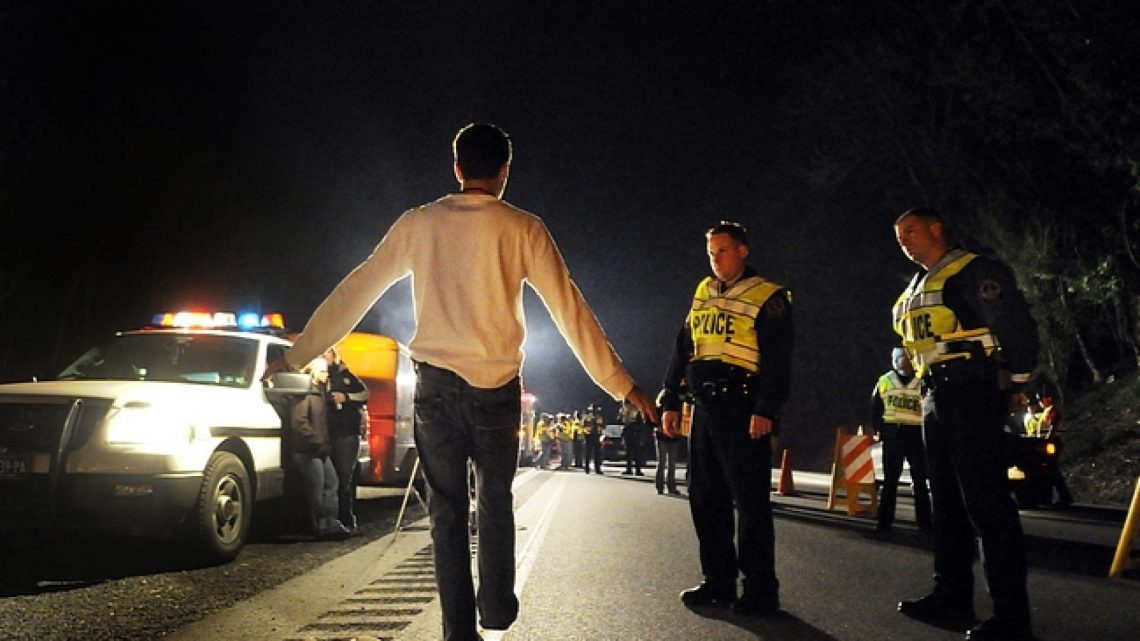
Understanding the Legal Implications of DUI Convictions: Is It a Criminal Offense or Misdemeanor?
March 10, 2024Driving under the influence (DUI) is a serious offense that can have lasting legal consequences. Whether it’s considered a criminal offense or misdemeanor depends on various factors, including the severity of the incident and prior offenses.
What is a DUI?
When a motorist operates a vehicle while impaired by alcohol or drugs, they can be charged with a DUI. The legal blood alcohol concentration (BAC) limit varies by state, and exceeding this limit constitutes a DUI offense.
Definition of DUI
A DUI, also known as driving while intoxicated (DWI), is a criminal offense that occurs when a driver operates a vehicle under the influence of alcohol or drugs. It is a serious traffic violation with potential legal ramifications.
Types of DUI charges
There are different types of DUI charges, including first-time DUI offenses, multiple DUIs, and aggravated DUI charges for extremely high BAC levels or causing injury or death while driving under the influence. Each type carries varying penalties and potential legal consequences.
Consequences of a DUI conviction
Upon a DUI conviction, individuals may face fines, license suspension, mandatory alcohol education programs, probation, and even imprisonment, depending on the circumstances surrounding the offense and the defendant’s prior history.
Is DUI a Felony or Misdemeanor Offense?
Whether a DUI is classified as a felony or a misdemeanor largely depends on the specific circumstances of the incident and the defendant’s prior record.
DUI as a misdemeanor
For many first-time DUI offenders without aggravating factors, the offense is often classified as a misdemeanor. This typically results in lighter penalties compared to felony convictions.
DUI as a felony
If certain aggravating circumstances are present, such as multiple prior DUI convictions or causing injury or death while driving under the influence, the offense may be charged as a felony, carrying more severe penalties.
Factors determining if a DUI is a felony or misdemeanor
The determination of whether a DUI is a felony or misdemeanor is influenced by factors like BAC level at the time of the arrest, prior DUI convictions, and any harm caused to others due to the impaired driving.
Consequences of a DUI Conviction
A DUI conviction can have far-reaching implications that extend beyond the legal consequences imposed by the court.
Criminal record implications
Whether a DUI conviction appears on a criminal record depends on whether the offense is classified as a misdemeanor or a felony. Both classifications can have long-term repercussions on an individual’s criminal record.
Penalties for DUI convictions
Penalties for DUI convictions vary but may include fines, jail time, community service, mandatory ignition interlock installation, and substance abuse programs as part of probation requirements.
Impact on future driving privileges
A DUI conviction often leads to driver’s license suspension or revocation, affecting the individual’s ability to legally operate a motor vehicle. Reinstating driving privileges usually involves meeting specific requirements and paying associated fees.
Legal Representation for DUI Charges
When facing DUI charges, obtaining legal representation is crucial to navigate the complex legal process and pursue the best possible outcome.
Role of a DUI attorney
A DUI attorney provides legal counsel and representation for individuals charged with DUI, guiding them through the legal proceedings, analyzing evidence, and formulating defense strategies tailored to the specifics of the case.
Defense strategies for DUI charges
Common defense strategies for DUI charges include challenging the legality of the traffic stop, disputing the accuracy of breathalyzer or blood test results, and questioning the conduct of law enforcement officers during the arrest process.
Potential outcomes of DUI cases
The outcome of a DUI case can vary widely based on the evidence presented, the effectiveness of the defense, and the specific circumstances of the incident. Possible outcomes include acquittal, reduced charges, or plea bargain agreements.
Handling Multiple DUI Offenses
For individuals facing multiple DUI charges, the legal ramifications and potential penalties are significantly heightened.
Consequences of a second DUI
A second DUI offense typically results in harsher penalties than a first offense, including longer license suspension, steeper fines, and potentially an order for the installation of an ignition interlock device upon license reinstatement.
License suspension for multiple DUIs
Multiple DUI convictions often lead to longer-term or permanent license suspension, impacting an individual’s ability to commute to work, attend school, or carry out daily activities that require driving.
Legal options for handling multiple DUI charges
When facing multiple DUI charges, seeking legal counsel is critical to explore potential defense strategies, understand the severity of the potential consequences, and work towards the best possible resolution.
What is the difference between a misdemeanor DUI and a felony DUI?
In general, a misdemeanor DUI is a less serious offense compared to a felony DUI. The main difference lies in the severity of the charges and the potential penalties. A misdemeanor DUI typically results in less severe consequences, while a felony DUI can lead to more significant legal ramifications.
Is a DUI considered a criminal offense?
Yes, a DUI (driving under the influence) is considered a criminal offense in most states. It can result in a criminal record, fines, and potential jail time, especially if it is a repeat offense or if there are aggravating factors involved.
What are the potential penalties for a DUI conviction?
The penalties for a DUI conviction can vary depending on the circumstances and the state in which the offense occurred. They may include fines, license suspension, mandatory alcohol education programs, community service, and in some cases, imprisonment. Additionally, the severity of the penalties can increase for repeat offenses and felony DUI convictions.
How does a DUI conviction affect my criminal record?
A DUI conviction can have long-term consequences, as it may result in a criminal record. This can impact various aspects of your life, including employment opportunities, housing applications, and professional licenses. It’s essential to understand the potential impact of a DUI conviction on your criminal record.
Should I seek legal advice if charged with a DUI?
It is highly advisable to seek legal advice and representation if you are charged with a DUI. A skilled DUI lawyer can assess your case, provide guidance on the legal process, and work to defend your rights and mitigate the potential consequences of the charges.
Can a DUI conviction be expunged from my record?
In some jurisdictions, it may be possible to expunge a DUI conviction from your record under specific circumstances. However, the eligibility and process for expungement can vary by state and may depend on factors such as the severity of the offense and whether it is a first-time conviction. Consulting with a legal professional can provide clarity on expungement options.
What is the legal limit for blood alcohol concentration (BAC) when driving?
The legal limit for blood alcohol concentration (BAC) when operating a vehicle is typically 0.08% in most states. Exceeding this limit can lead to a DUI charge and potential legal consequences.
What are the differences between a first DUI and subsequent DUI convictions?
The penalties for a first DUI offense are generally less severe compared to subsequent DUI convictions. Repeat offenses often result in escalated penalties, including increased fines, longer license suspensions, and a higher likelihood of facing a felony DUI charge.
Is a DUI considered a felony offense in all states?
While DUI laws vary by state, in many states, a DUI can be considered a felony under certain circumstances. These may include multiple repeat offenses, DUI incidents causing serious injury or death, or other aggravating factors specified by state laws.
Do traffic offenses related to DUI show up on my criminal record?
Yes, traffic offenses related to DUI, such as driving under the influence, can show up on your criminal record. This can have lasting implications and may impact your legal standing and future opportunities, emphasizing the importance of understanding the legal consequences of DUI convictions.
Conclusion
When it comes to drunk driving offenses in California, the consequences of a DUI conviction can vary depending on the circumstances. A first and second DUI offense in California is typically considered a misdemeanor DUI conviction, which can result in fines, license suspension, and potentially a year in jail. However, if you receive a third DUI conviction, the stakes are raised significantly. A third DUI conviction can elevate a DUI to a felony charge, which can result in a criminal record as a felony and even more severe penalties.
Criminal defense
If you are charged with a felony DUI due to a third DUI conviction, it is crucial to seek the help of a reputable criminal defense law firm. A felony charge can have long-lasting consequences, including impacting your criminal history and potentially affecting future background checks. A skilled criminal defense attorney can help you navigate the legal process and work to minimize the impact of the charges against you.
Penalties for DUI convictions
Ultimately, a DUI conviction is considered a crime in California, whether it is your first DUI conviction or your third. A misdemeanor DUI conviction can have serious repercussions, including fines, license suspension, and a criminal record as a misdemeanor. However, a third DUI conviction can lead to even more severe penalties, including a felony charge and potential time in jail. To avoid the harsh consequences of a felony DUI charge, it is essential to abide by the conditions of service and potentially seek legal representation to fight the charges against you.
Seeking legal assistance
If you have received a DUI and are facing criminal charges, particularly for a third DUI offense in California, it is crucial to act quickly and seek legal assistance. A skilled criminal defense attorney can help you understand your rights, navigate the legal system, and work towards the best possible outcome for your case. By taking proactive steps and seeking legal counsel, you can potentially minimize the impact of a DUI conviction on your future.


